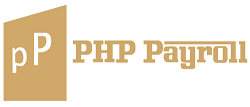Open-source payroll software provides a useful alternative to more popular proprietary options. It often costs far less than traditional payroll software, can offer strong data security and often gives you greater flexibility over features and upgrades.
While open-source payroll software may be too technical for some businesses, it can be a great option for others ― especially with one of these top open-source payroll software picks.
Jump to:
- Top open-source payroll software comparison
- Top open-source payroll software for your business
- Key features of open-source payroll software
- Benefits of working with open-source payroll software
- How do I choose the best open-source payroll software for my business?
- Methodology
Top open-source payroll software comparison
Some open-source payroll software keeps things very basic, without features like customer support and mobile access. As you shop around, make sure you understand what features you are and aren’t getting with a specific software.
| Starting price | Automation tools | Software integrations | Professional support | Mobile app | ||
|---|---|---|---|---|---|---|
| Odoo Payroll | $0 | Yes | Yes | No | No | Try Odoo |
| TimeTrex Community Edition | $0 | No | None out of the box | No | No | Try TimeTrex |
| Empxtrack | $0 for up to 25 employees | Yes | No | Yes | No | Try Empxtrack |
| PHP Payroll | $0 | Yes | No | Yes | No | Try PHP Payroll |
| AMGTime | $10 base + $1/employee/mo. | No | Yes | Yes | Yes | Try AMGTime |
Top open-source payroll software for your business
Odoo Payroll: Best overall open-source software

Odoo offers a platform that brings together all your business management needs. The open-source version, Odoo Community, comes with only a few key features like invoicing. Fortunately, Oddo has an app store that helps you add all the payroll functionality you want. Odoo is popular enough that you get tons of app choices, too.
Between paid and free apps for payroll (and many other things), you can set up Odoo to work just the way you want ― and at the price point you want.
Pricing
You can get the open-source version of Odoo, Odoo Community, for free. You may end up paying for specific apps, though you can find plenty of free options. Note that the licensed version of Odoo, Odoo Enterprise, is a paid product.
Features
- Open-source business management platform with marketplace for extensions.
- Built-in invoicing, expenses, time, marketing and other tools.
- Marketplace apps for payroll, document management, marketing, HR and more.
Pros
- Huge app store with many module choices from many developers.
- High level of customization available to fit your unique needs.
- No or low cost for payroll and many other features.
Cons
- No mobile access for open-source edition.
- No customer support with Odoo Community.
- Potentially steep learning curve, with plenty of customization required.
For more information, read the full Odoo review.
TimeTrex Community Edition: Best time tracking software

As the name suggests, TimeTrex is workforce management software that emphasizes time tracking ― but it includes payroll and other HR features too. Unlike many other payroll platforms that require you to integrate with third-party time management software, TimeTrex comes with tools for recording punches, managing timesheets and awarding accruals. Those built-in time tools translate to a seamless payroll experience within TimeTrex’s open-source app.
Pricing
TimeTex Community Edition is a free version that offers basic time and attendance, payroll, scheduling and HR tools. Other versions that aren’t open source add more features and start at $30 per month.
Features
- Payroll, including tax calculations, check printing and reporting.
- Time and attendance tracking.
- Employee scheduling and leave management.
Pros
- Completely free Community Edition.
- Active community forum for support.
- Cloud-hosted and on-site versions available.
Cons
- No mobile app for employers or employees.
- No professional support.
- No tax document creation or delivery.
Empxtrack: Best customizations

While some open-source software feels painfully basic, Empxtrack offers a fully customizable payroll experience. You can set up salary bands and structures, arrange for custom pay periods, create different payslip formats, calculate taxes according to various rules and more. Plus, Empxtrack can manage non-payroll employee payments, expenses and leave. All these tools give Empxtrack more flexibility than other payroll software without the need for extra integrations.
Pricing
Empxtrack Payroll is free for up to 25 employees. After that, each additional employee costs $19.97 per month.
Features
- Payroll calculations, including tax, leave, attendance and expense management.
- Payment management for commissions, bonuses, holiday pay and other non-salary payments.
- Customizations for salary structures, pay periods, payslip formats and more.
Pros
- Professional support for all customers.
- Free plan for smaller teams.
- More configuration options than other open-source payroll options.
Cons
- High cost for larger teams.
- Potential wait time to get technical support.
- Some feature limitations on free plan.
PHP Payroll: Best employee experience

PHP Payroll’s self-hosted payroll software has the usual payroll tools for managers, but it also focuses on giving employees a good payroll experience. Employees can view their payslips and report any issues, giving them extra peace of mind. They can also manage day-to-day scheduling, from reporting availability to picking shifts to managing leave
PHP Payroll also lets you assign employee roles and permissions, so you can make sure employees see what matters to them ― and that they don’t see data they shouldn’t.
Pricing
PHP is completely free, with no paid version. You can, however, pay extra for software installation, feature development or major software customization requests.
Features
- Server-hosted software that manages payroll, attendance, performance and more.
- Employee payslip viewing and ticketing.
- Document management for offer letters, org charts and other important files.
Pros
- No cost to use payroll software.
- Option to pay for customization or extra software features.
- Many tutorials, complete with photo and video guides.
Cons
- Support through email only.
- Just 30 days included in the software activity log.
- No cloud-based version or mobile app.
AMGTime: Best for employee management

AMGTime’s employee management platform gives you strong tools for monitoring and analyzing your workforce. Unlike other open-source solutions, AMGTime allows for hardware-based time punches along with advanced features like geofencing and GPS tracking. That makes it easier to ensure employees work where ― and not just when ― they should be working.
AMGTime also gives you various reports on attendance and tardiness, so you can get the insights you need to effectively manage your workforce.
Pricing
AMGTime offers both on-premises and cloud-based versions. The server version starts at $170 for two users and 25 employees, while the cloud version starts at a $10 base fee plus another $1 per employee each month. AMGTime also offers time clock hardware and training.
Features
- Employee time tracking, including geofencing and GPS tracking tools.
- Payroll integrations with over 120 payroll tools.
- Shift scheduling and PTO management.
Pros
- Mobile app for managers.
- Both server-based and cloud-based software options.
- Integrations with tons of other payroll apps and services.
Cons
- Fewer built-in payroll tools than the competition.
- Reports of unresponsive customer service.
- Very limited software customization.
Key features of open-source payroll software
Before you commit to implementing new payroll software, you should make sure it fits with your workflow and needs. Open-source payroll software typically doesn’t have all the bells and whistles you get with the best payroll software, but you should still consider these important features.
Professional customer support
If you’re used to licensed software, you may be surprised to find that most open-source payroll software has very limited customer support. These platforms often rely on community forums to offer support. So, if you’re worried about the technical challenges of implementing a new payroll solution, you may want to look for software with dedicated customer support.
Mobile and online access
While some open-source payroll software offers mobile and online access, many tools don’t. In fact, quite a few open-source platforms require installation on your own server. That might work for businesses with office-based employees, but if you have a hybrid or remote workforce, you’ll need to figure out remote server access ― or just choose software that provides online access.
Software integrations
Integrations with accounting, time tracking and other software can keep your payroll more accurate and save you lots of time. If you already rely on specific software, you should check to see if your potential payroll solutions will sync with your existing apps. Or, if you have the know-how, open-source software makes it easier to build your own integrations.
Payroll automation
Most payroll software comes with some level of automation, even if it’s just calculating taxes for you. More advanced automation can automatically distribute payslips, file tax documents and sync with outside software. If you want to spend less time on payroll, look for software with more extensive automation tools.
Localization
Payroll rules and regulations vary widely by jurisdiction, so it’s helpful to have payroll software that can adapt to your (or your employees’) location. That can include allowing for different currencies, but the best software also localizes tax calculations.
How do I choose the best open-source payroll software for my business?
The best open-source payroll software for your business should give you a more affordable, flexible experience than licensed competitors. It ought to include essential payroll functions, like tax calculations and payslip creation, along with helpful features for time and employee management.
That said, different businesses will have different needs from their payroll software. The best payroll software for accountants, for instance, will need seamless integrations with popular accounting software and robust customer support. But payroll software for a small retail store may care more about timesheets and online access. Make sure you think through what matters to your business so you end up with open-source payroll software that actually solves your problems, instead of creating more.
Methodology
We assessed a number of payroll solutions to find platforms that offered a truly open-source option. We then analyzed them based on factors like pricing, customer support options, payroll and time features and customer reviews.

